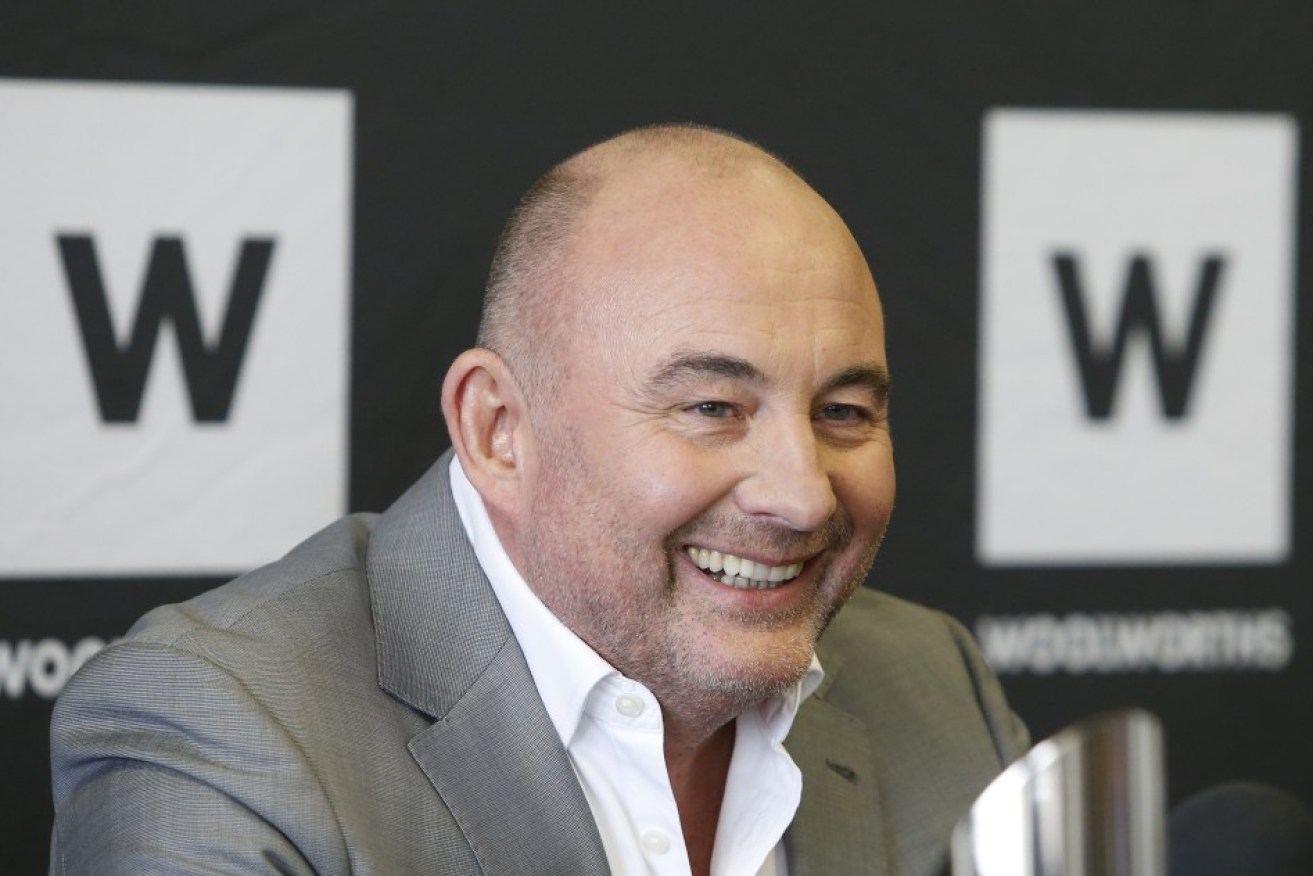The Scotsman in charge of the South African company aiming to buy David Jones wants to reassure Australians that they’re not losing yet another local icon to overseas hands.
“Don’t be despondent, we’re not taking David Jones anywhere,” Ian Moir, chief executive of Woolworths Holdings said.
“We’ve just paid $2.1 billion for it – we love it to death.
“We’ll be looking after it like it’s our own.”
South Africa’s Woolworths – which is unrelated to Australia’s supermarket group of the same name – surprised almost everyone on Wednesday with a $4 a share takeover bid that has the full support of the David Jones board.
If shareholders of both companies approve the deal, David Jones will be foreign-owned by July, in the process making Woolworths one of the world’s 10 biggest department store operators.
In name at least, DJs will not change but Moir has signalled there will be a big increase in upmarket private label clothing, possibly sourced from Woolworths’ own facilities, including Chinese factories, where it already makes products for its South African stores.
“David Jones is one of the most recognised brands in this country – why wouldn’t you capitalise on that,” he said.
Private label clothes have delivered fatter profits to Woolworths because of the bigger margin the retailer receives.
Along with improved online operations and customer loyalty programs, those private label clothes are supposed to help meet the ambitious $130 million-a-year increase in pre-tax earnings Moir says he can deliver at DJs within five years.
Commonwealth Bank retail analyst Andrew McLennan said the target was “quite a big number”, considering DJs’ forecast earnings before tax for the current year are $141 million.
David Jones chief executive Paul Zahra – who only recently unwound a decision to leave the company – is another feature that evidently won’t change.
Moir said he has met with Zahra once and he liked the local CEO and his handling of DJs.
“We don’t own the business yet – when we do we’ll speak with Paul straight away,” he said.
Woolworths’ formal wooing of David Jones began in March with a phone call from Moir to David Jones chairman Gordon Cairns but the South Africans had been eyeing their target for much longer.
They had looked at all potential Australian candidates – Myer included – and even checked out options in Brazil but none offered the fit that David Jones did.
One benefit was the “big Southern Hemisphere advantage” of shared seasons – a crucial factor in fashion lines – and the other was scale.
Cairns said scale is the only defence in an environment where spending is tight and big Northern Hemisphere stores and lower-end retailers are squeezing department stores in a pincer movement.
Cairns said the response from David Jones’ major investors has been “almost universally positive” because the deal offers a significant premium and has the attraction of being all-cash.
Woolworths’ $4 offer represents a 25.4 percent premium to the April 8 closing price of $3.19.
Industry analysts said that while proposed takeover of the David Jones department stores added impetus to David Jones’ shares, growth prospects for Australia’s department stores industry remain conservative.
Over the past five years, the department stores industry’s revenue has contracted at a compound annual rate of 1.8 per cent to total $18.7 billion.
Profit margins have fallen to represent 5.8 per cent of revenue in 2013-14.
According to IBISWorld, this year’s growth prospects do not look much more promising, with revenue estimated to rise by only 0.9 per cent.
“Despite improvements in overall economic conditions, consumers remain in a frugal frame of mind,” said IBISWorld Australia General Manager, Karen Dobie.
The trend for deleveraging is continuing, which means ongoing pressure on discretionary spending.
“While David Jones’ shares surged on the Woolworths takeover announcement, the long-term success of local department stores is certainly not secure at this stage,” said Dobie.
The department stores industry has been hit especially hard by the rapid growth of online retailing, with online stores benefiting from a different business model with lower overhead costs once they achieve scale.





